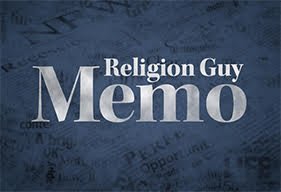It has been a big week for the ongoing LGBTQ+ story. Even as the U.S. Supreme Court heard oral arguments in a case about how much to tolerate personal dissent against same-sex marriage, the U.S. House, the House this morning passed nationwide codification of the gay marriage right that the Court enacted by 5-4 in the 2015 Obergefell ruling.
The new law effectively concludes phase one in the unusually rapid upending of a central societal structure dating from antiquity. The next few years, the media will be covering the mop-up phase facing religious groups and individuals that uphold traditional teachings about marriage, over against anti-discrimination assertions by government, Hollywood, corporate America and private actors.
The current Supreme Court case (303 Creative LLC v. Elenis, docket #21-476) involves a Colorado website designer who does not create pages that celebrate same-sex weddings — though she serves gay customers otherwise. Her free-speech claim is opposed by, for example, Reform Judaism, many liberal Protestants and other social liberals.
Observers figure that the Court, with a more traditionalist makeup than in 2015, will back this designer’s plea and ultimately look kindly upon further religious claims under the Bill of Rights. If so, the future conflict may focus on the Carborundum tactic as the LGBTQ+ movement grinds down conservatives’ energy, time and money in long-running legal maneuvers, meanwhile building cultural pressure to marginalize conscientious objectors as simple bigots.
An opinion-page complaint against religion’s “encroachment” upon society, posted by NBC News and written by Stanford University journal editor Marcie Bianco, neatly encapsulates where this culture war appears to be heading. This is the voice from the cultural left:
Dig a bit deeper, and what this act really represents is the inflexibility of our nation’s institutions and the national entrenchment — despite constitutional assurances to the contrary — of religion.
At its worst, the legislation is a Trojan horse ushering in protections that allow religious institutions — from churches to mosques, religious nonprofits to religious schools — the right to refuse services, facilities and goods for any marriage ceremony or celebration. Effectively, this act codifies discrimination.
Will Congress’s new “Respect for Marriage Act” calm conflict? The Internet is clogged with complex commentary on this legislation so The Guy will suggest some resources to help untangle the news context.
Like the Obergefell decision, House Democrats’ original bill (backed by 47 Republicans) sidestepped the conscience problem. Then the bill only passed the Senate because Republicans obtained a last-minute bipartisan religion amendment aimed at concerns of U.S. Catholic bishops (.pdf here), Southern Baptists and major social-conservative lobbies. The resulting negotiations produced this added wording in the bill that passed.
That was deemed sufficient protection by religious-liberty advocates such as The Church of Jesus Christ of Latter-day Saints, Seventh-day Adventist Church, Union of Orthodox Jewish Congregations, Council for Christian Colleges and Universities, church-state expert Carl Esbeck in evangelical Christianity Today and evangelical pundit and First Amendment pro David French.
French’s sunny outlook is contested by his friend Kristen Waggoner, who argued 303 Creative before the Supreme Court. She’s the new president of the Alliance Defending Freedom, where French long labored as a religious-liberty litigator. To Waggoner and others, it’s telling that the Senate defeated tougher religious-freedom language in an amendment proposed by 14 Republicans led by Utah’s Mike Lee.
Journalists need to carefully compare the Lee text with the above amendment as passed by the Senate. (Religion amendments from Senators James Lankford of Oklahoma and Marco Rubio of Florida were also voted down.)
We’ll soon learn whether religious alarmists are correct to fear ongoing harassment of organizations and individuals.
The new act addresses two non-issues, guaranteeing that churches will not be forced to conduct weddings that violate doctrine, and that polygamy remains illegal. Instead, disputes will involve, for example, public aid to religious adoption and foster-care agencies, whether traditionalists must provide goods and services for same-sex weddings (per that 303 Creative case), or whether a parochial school can fire a teacher in a same-sex marriage or one who advocates such belief, if if that teacher has agreed not to oppose the school’s doctrinal covenants.
The big action is expected to involve whether federal or lower governments halt funding for conservative religious colleges or deny their tax exemption. Even more lethal would be the removal of campus accreditation by the private regional associations. Here’s the latest Associated Press roundup on campus strife and a related Guy Memo from last year.
Contacts of note: Alliance Defending Freedom (800-835-5233) media requests go via this link. ADF’s specialist in government affairs and school cases is senior counsel Gregory S. Baylor. The Religious Exemption Accountability Project (www.thereap.org) leads a legal campaign against religious colleges; media source is Joe Baxter, media@thereap.org.
FIRST IMAGE: Various mop options at OhSoSpotless.com


